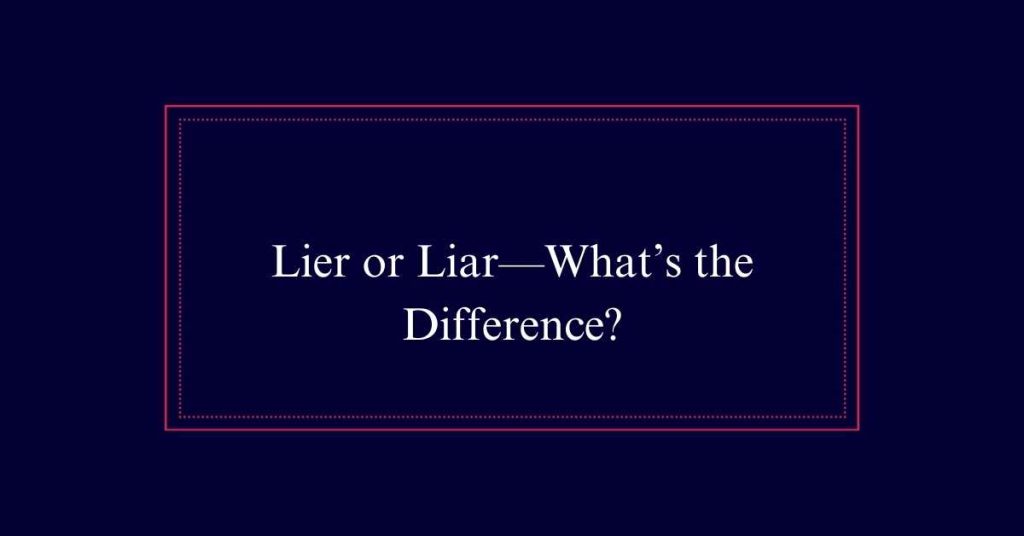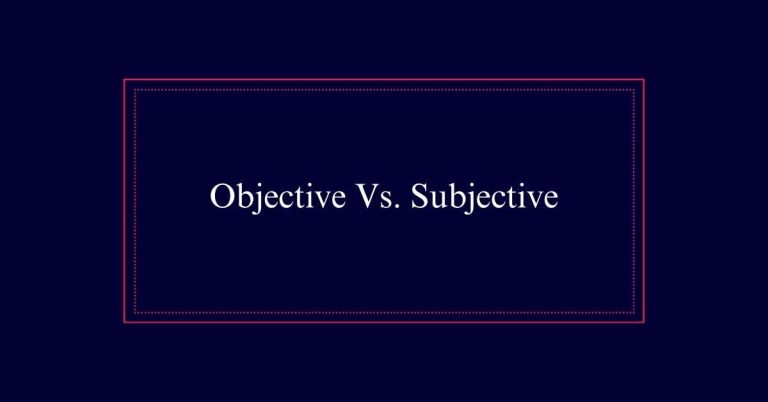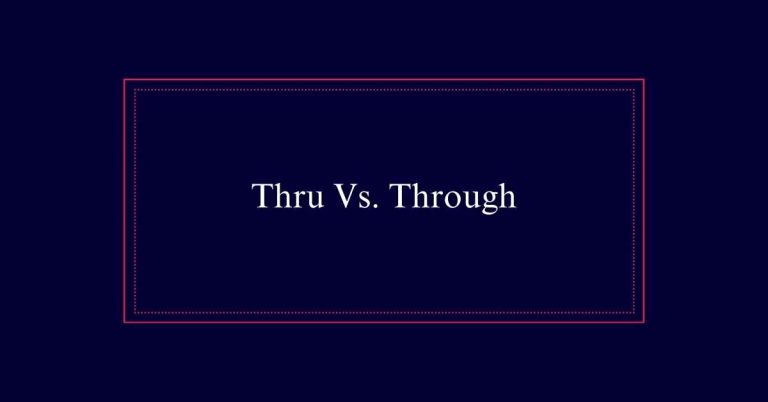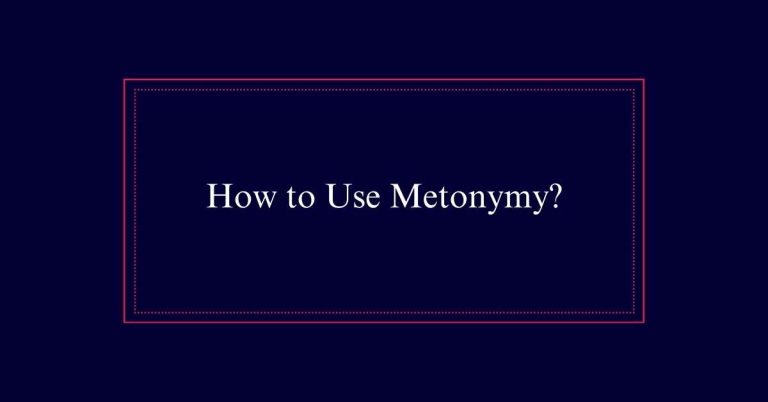Lier or Liar—What’s the Difference?
‘Lier’ and ‘liar’ have different meanings and uses. ‘Liar’ describes someone who tells lies and is untrustworthy, originating from Old English ‘lēogere’. It implies deceit and lack of integrity. ‘Lier’, a rare term, describes someone lying down. It comes from Old English ‘līġan’ and is mostly found in older texts. Misunderstandings occur due to their similar spelling.
Definition of ‘Liar’
A ‘liar’ is an agent noun derived from the verb ‘lie,’ which means to say something untrue. The term denotes someone who knowingly says things that are false. A liar engages in deception by not telling the truth.
They intentionally mislead others by providing false information. Being labeled a liar implies a lack of trustworthiness and honesty. This term carries a negative connotation and affects how others perceive the individual.
In various contexts, identifying a liar is essential for maintaining integrity and trust. The concept of a liar is fundamental in understanding human interactions and the importance of truthfulness in relationships.
Definition of ‘Lier’
‘Lier’ is a word that often gets confused with ‘liar’ but has a distinct meaning related to physical posture. Unlike ‘liar,’ which deals with dishonesty, ‘lier’ describes someone or something in a horizontal or reclining position. It is derived from the verb ‘lie,’ which means to rest.
- Usage: ‘Lier’ is rarely used in modern language and is often mistaken for ‘liar.’
- Noun Form: As a noun, ‘lier’ refers to a person or object lying down.
- Context: This term is more likely to be encountered in older texts or specific scenarios related to physical rest.
Understanding ‘lier’ helps avoid common spelling errors and misinterpretations in writing and speech.
Origins of ‘Liar’
The term ‘liar’ originates from the Old English word ‘lēogere,’ which means someone who tells lies. This word is derived from the verb ‘lēogan,’ meaning to tell a falsehood.
The evolution of ‘lēogere’ into ‘liar’ reflects the linguistic changes in Middle English, where it began to take on its modern form. By the 13th century, ‘liar’ was commonly used in English to describe someone who intentionally deceives others.
Over time, the word maintained its negative connotations, implying dishonesty and untrustworthiness. Today, calling someone a liar still carries significant moral weight, reflecting the deep-rooted societal value placed on truthfulness and integrity.

Origins of ‘Lier’
Many people misunderstand the term ‘lier,’ often confusing it with ‘liar.’ The word ‘lier’ originates from the verb ‘lie,’ meaning to rest in a horizontal position. Unlike ‘liar,’ which denotes someone who tells falsehoods, ‘lier’ refers to a person or thing that is lying down. This term is much less common and is primarily used in literary or formal contexts.
- Etymology: Derived from Old English ‘līgan,’ meaning to lie down.
- Usage: Often found in classical literature and formal writing.
- Context: Describes physical posture, not deception.
The distinction between ‘lier’ and ‘liar’ is important, as they convey entirely different meanings despite their similar spellings and pronunciations.
Common Misunderstandings
Confusion often arises due to the similar spelling and pronunciation of ‘lier’ and ‘liar’. Many people mistakenly use these words interchangeably, unaware of their distinct meanings.
A ‘lier’ is someone or something in a reclining position, derived from the verb ‘lie’ as in lying down.
In contrast, a ‘liar’ is an individual who tells falsehoods, intentionally misleading others.
This misunderstanding is compounded by the fact that ‘lier’ is less commonly used, leading to its frequent misidentification as a misspelling of ‘liar’.
Recognizing the difference is essential to avoid miscommunication. Precise language use guarantees clarity, particularly in written and verbal exchanges where accuracy is paramount.
Real-World Examples
In real-world scenarios, distinguishing between a ‘lier’ and a ‘liar’ is crucial for clear communication. Misunderstanding these terms can lead to confusion and misinterpretation. For instance, in medical contexts, describing a patient as a ‘lier’ indicates they are lying down, not engaging in deceit. Conversely, labeling someone as a ‘liar’ has serious implications for their character and trustworthiness.
- Legal Proceedings: Accurate use prevents miscommunication in testimonies and affidavits.
- Workplace Communication: Guarantees clear understanding of employee behavior and actions.
- Everyday Interactions: Helps avoid misunderstandings in personal relationships.
Literary Usage
Within literature, the distinction between ‘lier’ and ‘liar’ enriches character development and narrative complexity.
A ‘liar’ can drive plot twists and conflicts, revealing themes of trust and betrayal. The presence of a ‘liar’ introduces tension, as characters and readers navigate deception.
In contrast, a ‘lier’ signifies rest or stillness, often used to depict vulnerability or introspection. This duality offers writers tools to explore human nature deeply.
For example, a character lying in bed (‘lier’) might be contemplating truths or falsehoods, contrasting with another character who is a ‘liar.’ Such nuances enhance the storytelling, allowing for layered interpretations and emotional depth.
Therefore, understanding these terms is essential for appreciating literary artistry.
Linguistic Differences
Understanding the distinction between ‘lier’ and ‘liar’ in literature also requires examining their linguistic roots and meanings. Both words originate from the verb ‘lie,’ yet they diverge in semantics and usage. ‘Liar’ is derived from the verb meaning to deceive, while ‘lier’ stems from the verb meaning to recline. This difference is vital for accurate interpretation.
- ‘Liar’ implies falsehood and dishonesty.
- ‘Lier’ denotes a physical position of lying down.
The confusion often arises from their similar spellings but distinct contexts.
The etymological paths of these words highlight the complexities of language. Understanding their roots aids in grasping their specific meanings and avoiding common mistakes.
Cultural Impact
Cultural interpretations of ‘lier’ and ‘liar’ shape societal views on truth and deception. The distinction between the two words affects how different cultures perceive honesty and trust. While ‘liar’ is universally condemned for its association with dishonesty, ‘lier’ is neutral, linked to physical rest. Media and literature often portray liars in negative light, emphasizing the moral consequences of deceit. This contrast highlights the importance of context in understanding language and behavior.
| Aspect | ‘Lier’ | ‘Liar’ |
|---|---|---|
| Definition | Someone lying down | Someone who tells falsehoods |
| Cultural Perception | Neutral, no moral implication | Negative, associated with deceit |
| Media Portrayal | Rarely depicted | Frequently depicted negatively |
Understanding these cultural interpretations enhances our grasp of societal values.
Ethical Implications
The ethical implications of distinguishing between ‘lier’ and ‘liar’ are significant in discussions on trust and integrity. Mislabeling someone as a ‘liar’ when they are simply a ‘lier’ can lead to severe reputational damage and mistrust.
Clear communication is important to avoid such misunderstandings.
Trustworthiness: Incorrectly calling someone a ‘liar’ undermines their credibility.
Integrity: Accuracy in language reflects moral responsibility.
Accountability: Proper distinction holds individuals accountable for deceit, not mere posture.
Understanding the difference promotes fair judgment and maintains ethical standards. Misuse of these terms can lead to unjust consequences, impacting personal and professional relationships.
Therefore, precision in language is key to upholding trust and integrity in society.
Frequently Asked Questions
How Do Pronunciation Differences Help Distinguish ‘Lier’ From ‘Liar’?
Pronunciation differences help distinguish ‘lier’ from ‘liar’ by emphasizing the vowel sounds. ‘Liar’ has a longer “i” sound, while ‘lier’ has a shorter “i” sound. This distinction aids in correct interpretation and usage.
Are There Any Synonyms for ‘Lier’ and ‘Liar’?
For ‘lier,’ synonyms include recliner and lounger. For ‘liar,’ synonyms encompass deceiver, fabricator, and falsifier. Each synonym captures the essence of the respective term’s meaning, reflecting either physical posture or deceit.
Can ‘Lier’ and ‘Liar’ Be Used Interchangeably in Any Context?
‘Lier’ and ‘liar’ cannot be used interchangeably. ‘Lier’ refers to someone lying down, while ‘liar’ refers to someone who tells falsehoods. Their meanings are distinct and context-specific, preventing interchangeable use.
What Are Some Historical Examples of ‘Liers’ and ‘Liars’?
Historical examples of ‘liers’ include soldiers resting in trenches during World War I. Notable ‘liars’ include infamous figures such as Richard Nixon during the Watergate scandal, who deliberately misled the public and authorities.






